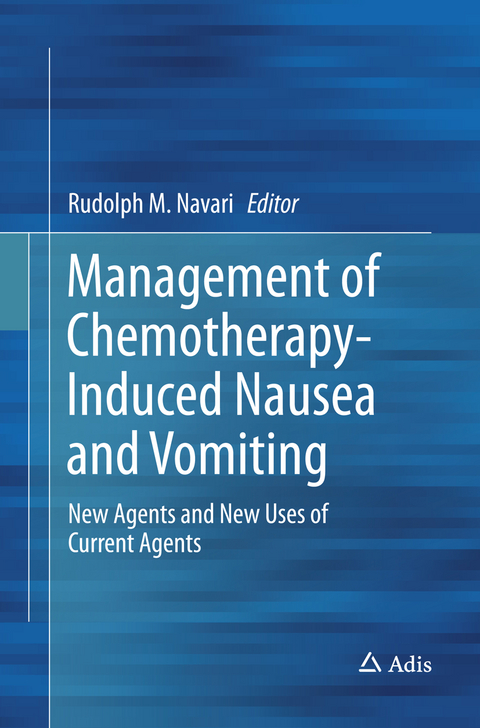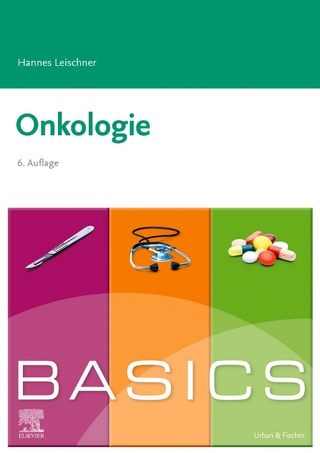
Management of Chemotherapy-Induced Nausea and Vomiting
Springer International Publishing (Verlag)
978-3-319-80058-5 (ISBN)
CINV is one of the most feared treatment related toxicities. Patient surveys for the past thirty years consistently demonstrate patients' perception of deterioration in quality of life due to chemotherapy treatments. The introduction of the antiemetics, serotonin 5-HT3 receptor antagonists and the neurokinin-1 receptor antagonists, have improved the control of chemotherapy-induced emesis, but the treatment of chemotherapy-induced nausea remains a significant clinical problem. Patients continue to have quality of life issues which prevent normal functioning during active treatment. New agents such as the second generation 5-HT3 receptor antagonist palonosetron and the new neuroknin-1 receptor antagonists rolapitant and netupitant are being introduced into clinical practice, and it is anticipated that these new agents will improve the control of CINV. Agents such as olanzapine (a FDA approved anti-psychotic), gabapentin (a FDA approved neuroleptic), and ginger (a food additive), which have been used primarily for other indications, are now being tested as potential, effective antiemetics.
This work represents the first available comprehensive summary that details all new antiemetic agents and, particularly, their clinical role in treating patients; an important reference for practitioners seeking to improve the quality of life of patients undergoing chemotherapy.
Dr. Navari received the Ph.D. degree at the University of Virginia, and the M.D. degree at the Medical College of Virginia. He received training in internal medicine at the University of Alabama in Birmingham, and was a Fellow in Hematology and Oncology at the Fred Hutchinson Cancer Research Center, University of Washington School of Medicine. He is board certified in internal medicine and medical oncology. From 1983 to 1998, he served on the Clinical Faculty of the University of Alabama Birmingham and was a practicing medical oncologist in the Simon-Williamson Clinic. During this time, he was Chairman of the Department of Medicine and President of the Simon-Williamson Clinic, Director of the Bone Marrow Transplantation Program and Director of the Comprehensive Cancer Program at Baptist Medical Center. In 1997, he was elected a Fellow of the American College of Physicians. During 1998-99, he was a Fellow in Clinical Medical Ethics in the MacLean Center for Clinical Medical Ethics at the University of Chicago. He joined the faculty of the College of Science of the University of Notre Dame (UND) in 1999 as Director of the Walther Cancer Research Center. He was appointed Associate Dean, College of Science, in 2000. In July, 2005, he became Professor of Medicine, Assistant Dean and Director, Indiana University School of Medicine South Bend (IUSM SB), and Adjunct Professor of Biochemistry, University of Notre Dame. In 2011, he was appointed Clinical Director, Harper Cancer Research Institute, a partnership between IUSM SB and UND. He was promoted to Associate Dean in 2012. Along with the medical students at IUSM SB, he founded the IUSM SB Student Outreach Clinic in 2013 and was appointed the Clinic's first Medical Director.
1. Introduction.- 2. The Physiology and Pharmacology of Nausea and VomitingInduced by Anti-Cancer Chemotherapy in Humans.- 3. First Generation 5HT-3Receptor Antagonists.- 4. Second Generation Serotonin (5-HT3) ReceptorAntagonist Palonosetron.- 5. The Role of Neurokinin-1 Receptor Antagonists inCINV.- 6. Olanzapine for the prevention of Chemotherapy-Induced Nausea and Vomiting.-7. Gabapentin for the Prevention of CINV.- 8. Prevention of CINV in Patients ReceivingHigh-Dose Multiple-Day Chemotherapy.- 9. Clinical Management of CINV.- 10. Treatmentof Chemotherapy-Induced Nausea.- 11. Conclusions.- 12. Future Directions.
| Erscheint lt. Verlag | 30.3.2018 |
|---|---|
| Zusatzinfo | VIII, 181 p. 17 illus., 8 illus. in color. |
| Verlagsort | Cham |
| Sprache | englisch |
| Maße | 155 x 235 mm |
| Gewicht | 408 g |
| Themenwelt | Medizin / Pharmazie ► Medizinische Fachgebiete ► Onkologie |
| Medizin / Pharmazie ► Medizinische Fachgebiete ► Pharmakologie / Pharmakotherapie | |
| Schlagworte | 5-Hyroxytryptamine-3 Receptor Antagonists • Anti-emetics • Dexamethasone • Gabapentin • Multi-day Chemotherapy • Neurokinin-1 Receptor Antagonists • Olanzapine • pharmacotherapy |
| ISBN-10 | 3-319-80058-2 / 3319800582 |
| ISBN-13 | 978-3-319-80058-5 / 9783319800585 |
| Zustand | Neuware |
| Haben Sie eine Frage zum Produkt? |
aus dem Bereich


